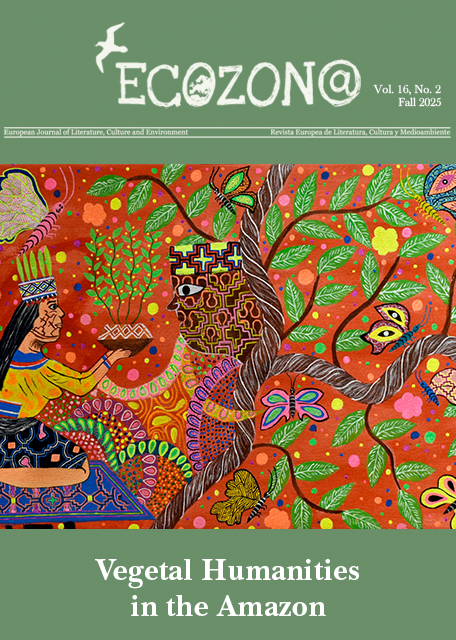The Christian Environmental Ethic of the Russian Pomor
DOI:
https://doi.org/10.37536/ECOZONA.2011.2.2.419Abstract
This article revisits Lynn White's famous 1967 article that placed the blame for environmental problems in the Western world on the Judeo-Christian belief system, and discusses the case of the Pomor, a Russian sub-ethnicity who settled on the shores of the White Sea in the twelfth century. Although maintaining their Orthodox faith after migrating to the edge of the Slavic cultural zone, the Pomor adopted an entirely new way of life suited to the climate of the far north. Rather than concentrating on agriculture, which proved unreliable at the extreme northern latitude, they turned their attention to the exploitation of marine resources: fishing, sealing, and whaling. Contending with the harsh elements on a daily basis, the Pomor developed a worldview called "sacral geography," which fused animism with Christian eschatology. Sacral geography, in addition to providing an interpretive system for the natural world, also obligated the Pomor to observe and respect the natural world by limiting their economic strategies. The result was a unique environmental ethic. In the late nineteenth century and early twentieth century, the Pomor environmental ethic came under direct criticism from larger social forces-first the local business community and then the Soviet state-because of its low productivity. Ultimately, Stalin's aggressive economic and political policies succeeded in eliminating the Pomor environmental ethic as an effective curb on resource exploitation.
Este artículo se propone revisar el famoso artículo de Lynn White de 1967, en el que culpa al sistema de creencias judeocristiano de los problemas medioambientales en el mundo occidental, y analizar el caso de los Pomor, una sub-etnia rusa asentada a orillas del Mar Blanco en el siglo XII. A pesar de mantener su fe ortodoxa después de migrar a la orilla de la zona cultural eslava, los Pomor adoptaron una nueva forma de vida adaptada al clima nórdico. En vez de concentrarse en la agricultura, que resultó ser poco fiable a tal latitud, centraron su atención en la explotación de los recursos marinos: la pesca, la caza de focas y la caza de ballenas. Al lidiar con unos elementos tan duros diariamente, los Pomor desarrollaron una visión del mundo llamada "geografía sagrada," que aunaba el animismo con las creencias cristianas. La geografía sacra, además de proporcionar un sistema de interpretación de la naturaleza, también obligaba a los Pomor a observar y respetar el mundo natural mediante la limitación de sus estrategias económicas. El resultado fue una ética del medio ambiente única. A finales del siglo XIX y principios del XX, la ética del medio ambiente de los Pomor fue criticada por fuerzas sociales más grandes, primero por la comunidad empresarial local y luego por el estado soviético, debido a su baja productividad. En última instancia, los agresivos principios económicos y políticos de Stalin lograron acabar con la ética medioambiental Pomor como freno eficaz a la explotación de los recursos.
Downloads
Downloads
Zusätzliche Dateien
Veröffentlicht
Ausgabe
Rubrik
Lizenz
Authors who publish with this journal agree to the following terms:
a) Authors retain copyright and grant the journal right of first publication with the work simultaneously licensed under a Creative Commons Attribution License that allows others to share the work with an acknowledgement of the work's authorship and initial publication in this journal (CC BY-NC for articles and CC BY-NC-ND for creative work, unless author requests otherwise.
b) Authors are able to enter into separate, additional contractual arrangements for the non-exclusive distribution of the journal's published version of the work (e.g., post it to an institutional repository or publish it in a book), with an acknowledgement of its initial publication in this journal.
c) Authors are permitted and encouraged to post their work online (e.g., in institutional repositories or on their website) prior to and during the submission process, as it can lead to productive exchanges, as well as earlier and greater citation of published work (See The Effect of Open Access).










